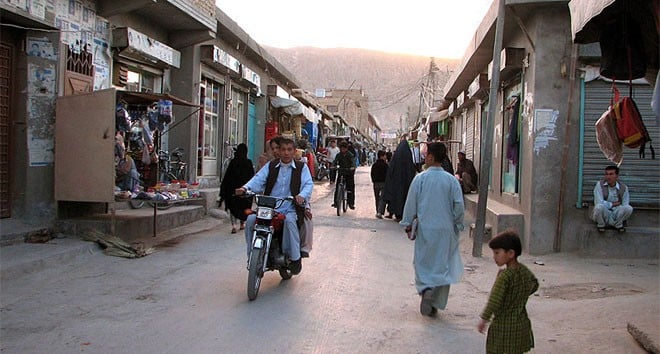
A Hazara’s heartfelt diatribe against the disintegration of his city

On my recent journey back home from Lahore, I met a soldier on train who was a resident of Baraich Colony, located in Pashtunabad area of Quetta. While talking to him, I was expressing my concern over the security situation for Hazaras in Quetta. The only point that interested him about the Hazaras was their settlement in Australia.
Also, I found his opinion about Baloch, that they are ‘good for nothing’, quite troubling.
I was convinced that he was one ordinary person of Quetta who does not get to talk to others so he talks about them.
Quetta has always been culturally, geographically and politically divided on ethnic lines. The local politicians might paint a flowery picture on the national media about the city’s peaceful past but, even for them, when it comes to votes, it is either ethnicity or religious differences which have always been the deciding factor.
It is evident that no one has ever had a plan of social integration for Quetta. It could have evolved into a socially-integrated city, but the changing political scenario of the region has given the city a new meaning.
Take for instance, my recent visit to the passport office in Quetta, when my mother insisted I wear a helmet to conceal my distinct Hazara looks; as a year before, two Hazaras had been shot dead at the main gate of the passport office. Also, because, it takes months and a series of visits to prove one’s identity to the passport issuing authorities, while the Lashkar-e-Jhangvi (LeJ) terrorists recognise and execute their targets on the spot.
Such militants have their hideouts in the city and the citizens cannot be blamed for their silence -- the escape of high-profile LeJ terrorists like Usman Saifullah Kurd from a jail in the high security zone of the Quetta cantonment is enough warning to the already divided public of Quetta to make them mind their own business.
These attacks have pushed the Hazara community into isolation. In one incident, a bus of the Sardar Bahadur Khan Women University was attacked with a bomb. The Hazara women were later announced to be the target. Consequently, the Hazara women were instructed not to commute on the university bus as it endangered others’ lives.
Hazaras, desperate for security, initially welcomed the deployment of the Frontier Corps (FC). But violence has continued. In fact, many attackers were found to be in FC uniforms. Later, some retired FC personnel, in anonymous interviews to the Human Rights Watch, accused the Hazara community of being Irani agents.
Initially, the FC personnel patrolled the city. Now, it covers all entry points into the two enclaves of the Hazara community -- at Alamdar Road and Hazara Town.
The deployment of FC has gained permanence without rendering any positive results.
Perhaps, the police and other civilian institutions should be entrusted with the security of the city, and the expenses incurred on the FC be utilised in their capacity-building.
The current security situation and the way it is being handled is decentralising the city and further alienating the citizens. Hazaras, in particular, are deprived of the financial opportunities in the city. The mountains that enclose Marriabad, used by Hazaras for recreation, have been taken over by the army.
The mismanagement of the problem is concretising the ethnic segregation. This social disintegration has disturbed the pattern of exchange among the citizens which is vital for the social and economic survival of the city.
There have been selective operations against Baloch separatists while the religious zealots and their militant wings have remained out of the scope. Inaction against these groups has led people to think that their blood spilled is being used as an excuse to crush the Baloch separatists. The members of the Raisani government either mocked the Hazara victims by offering them tissue paper to wipe their tears or openly expressed their inability to take action despite their claims of knowledge about the perpetrators.
Fanatics have found their way to the dead city of Quetta. Besides military action, there should be a long-term social integration plan.
The city is the political and administrative capital of the province but its importance as a cultural and economic hub has not been utilised. A comprehensive plan needs to be devised for interventions in the urban landscape of the city to stimulate economic and social activities.
But to start with, before all other things, the elected government of Balochistan has to have the will and the power to turn the tide in favour of the citizens.